Exploring the Dimensions of Community Engaged Scholarship
Karen Andrade, Ingrid Behrsin, and Chelsea Escalante
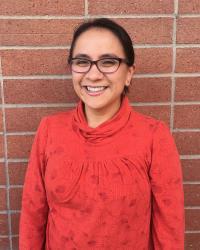
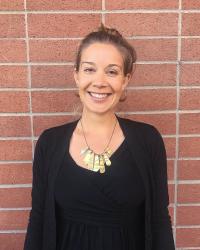
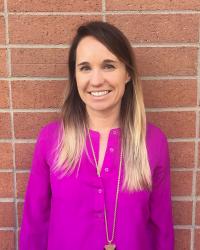
Community-engaged (or “public”) scholarship can be described as scholarly and creative work in the public interest, scholarship planned and carried out with community or public partners, or scholarship that produces a “public good” such as exhibits, performances, and broadly accessible research results. This scholarship acknowledges that research that includes impacted communities is likely to be more meaningful, relevant, and have increased reach. Similarly, Community Engaged Learning (CEL) (sometimes also termed “service learning”) is a student-centered pedagogical approach that thoughtfully pairs classroom learning goals and experiential student engagement in communities outside the classroom. While both community-engaged scholarship and CEL can raise awareness about critical issues facing society today and stimulate broad discussion about such issues, both are nevertheless socially-embedded practices that raise important questions about power dynamics, privilege, and positionality. Our one-day workshop will convene an interdisciplinary group of graduate students, postdocs, faculty members, and community partners to engage in critical dialogue and learning about community engagement in the academy. It will introduce examples of CEL and public scholarship, as well as the benefits and potential drawbacks of such endeavors. Workshop participants will exchange experiences, and/or develop foundational knowledge in developing research and CEL partnerships with community groups.
Learn More about Karen, Ingrid, and Chelsea's Project
R for Beginners: An Intensive Introduction to Exploratory Data Analysis
Kyle Christie & Marshall McMunn
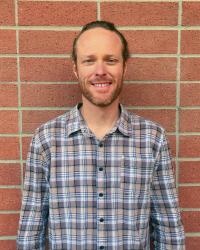
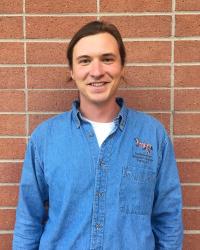 One of the biggest challenges for many graduate students in STEM fields is connecting with their data. Did I input my data accurately? How can I summarize my findings? Do I see any patterns? Can I make this task more efficient? Regardless of the degree program or scientific emphasis, exploring one’s data is the first step towards analyzing it, yet most graduate students lack the tools or know-how to efficiently manipulate, summarize, or visualize their data. Due to its power and flexibility, the programming language R, is increasingly used in academia and industry. However, just like any other language, R has a steep learning curve and requires a substantial initial time investment to gain basic fluency. The R for Beginners workshop will provide an immersive introduction to the R programming language. This week-long workshop is designed for students who have no previous experience with R or other programming languages. The course will be will focus on five major topics: 1) basic data manipulation and quality control, 2) summarizing data, 3) graphing and visualization, 4) basic automation of repetitive tasks, and 5) user-created functions. Students will gain a basic fluency in R, such that they will be able to independently manipulate, summarize, and visualize their own data. Students will develop their own workflows and amass their own scripts that can be employed on future datasets. Throughout the course we will focus on troubleshooting, making sense of those pesky error messages, and employing available online and campus resources to solve our own programming challenges. An intensive hands-on learning environment will equip students with the prerequisite R knowledge needed to explore their own data and tackle many graduate-level statistics courses.
One of the biggest challenges for many graduate students in STEM fields is connecting with their data. Did I input my data accurately? How can I summarize my findings? Do I see any patterns? Can I make this task more efficient? Regardless of the degree program or scientific emphasis, exploring one’s data is the first step towards analyzing it, yet most graduate students lack the tools or know-how to efficiently manipulate, summarize, or visualize their data. Due to its power and flexibility, the programming language R, is increasingly used in academia and industry. However, just like any other language, R has a steep learning curve and requires a substantial initial time investment to gain basic fluency. The R for Beginners workshop will provide an immersive introduction to the R programming language. This week-long workshop is designed for students who have no previous experience with R or other programming languages. The course will be will focus on five major topics: 1) basic data manipulation and quality control, 2) summarizing data, 3) graphing and visualization, 4) basic automation of repetitive tasks, and 5) user-created functions. Students will gain a basic fluency in R, such that they will be able to independently manipulate, summarize, and visualize their own data. Students will develop their own workflows and amass their own scripts that can be employed on future datasets. Throughout the course we will focus on troubleshooting, making sense of those pesky error messages, and employing available online and campus resources to solve our own programming challenges. An intensive hands-on learning environment will equip students with the prerequisite R knowledge needed to explore their own data and tackle many graduate-level statistics courses.
Learn More about Kyle and Marshall's Project
Annual Interdisciplinary Postdoctoral Research Symposium Organized by the UC Davis Postdoctoral Scholars Association (PSA)
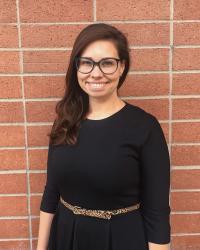
Molly Foote
The Interdisciplinary Postdoctoral Research Symposium is the only forum specifically tailored and dedicated for all postdocs here at UC Davis. Symposium provides a unique opportunity for fostering interdisciplinary research, networking and collaboration among UC Davis postdocs. The symposium was established in 2015 by Kaisa Kajala during her Professors For The Future (PFTF) fellowship. In order to continue this symposium and expand its audience, Nicky Creux is organized the 2016 symposium with a focus on social media promotion as her project for PFTF. All of the work Kaisa and Nicky have dedicated to setting up this symposium through the PFTF program has been validated by the overwhelming enthusiasm and support from both the postdoctoral community and UC Davis.
In order to keep the event solely focused on the postdocs, I believe that the organization should remain in the hands of the postdoctoral community. However, single-handedly organizing such a large event from scratch is time consuming and demanding. Therefore, for my PFTF project, I propose incorporating the organization and planning of the research symposium into the officer duties of the UC Davis Postdoctoral Scholars Association (PSA). By incorporating a detailed plan of duties for each officer, I believe that we can streamline the organization of the research symposium to ensure its annual continuation. My hope is that with continued funding and interest, the symposium will remain an annual fixture of the research community here at UC Davis to highlight the amazing work done by our postdocs.
Learn More about Molly's Project
Don’t Be Such a Scientist! – Improve Science Communication to Achieve Your Goals
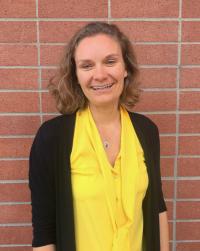
Simone Hasenbein
Often the general public finds scientific ideas difficult to understand or simply doesn’t recognize their importance, mainly due to a disconnect between scientists and the public they serve. Thus, effective science communication is necessary 1) to generate broader support and involvement in the sciences from the public and government, 2) to foster diversity in scientific participation, and 3) to convey the broader impacts of science which is often expected by grant-making agencies. Despite this need, most disciplines have not prepared graduate students and postdoctoral scholars to effectively share their work with people beyond their disciplines.
This is why I plan to organize a workshop to enable graduate students and postdoctoral scholars to apply effective communication tools to clearly convey scientific concepts beyond their disciplines to a variety of audiences. Specifically, the workshop topics will focus on 1) media interviews, 2) public communication, and 3) social media and obtaining an effective online presence. Fourthly, I will also touch on listening tools, to enable participants to identify the information that decision-makers need. I will teach communication skills through discussions, group work, and practice sessions. Invited panelists from various sectors will support the syllabus with real-life examples. A panel discussion will take place to conclude the workshop by reflecting on the topics covered.
Learn More about Simone's Project
Interactive Forum on Mental Health: Discussing Factors that Impact Graduate Student Well-Being and Success
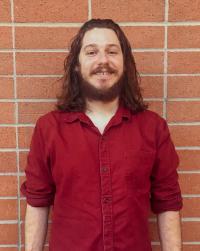
Jay Jefferson
Happiness is of critical importance to success. However, upon matriculation, graduate students enter into a world of uncertainty and each individual trajectory toward a career as an academic will not be without the stress, anxiety, and/or depression that will test the resilience of each student to complete their degree. At any point within an individuals tenure in graduate school, challenges may arise that affect each student differently, but nevertheless still obstruct academic performance in otherwise excellent students. As such, maintaining a positive well-being and good mental health remains, and always will remain, a necessary concern of not just the graduate students themselves, but the university as a whole. To this end, I propose a Professors For The Future (PTFT) project that builds on the information obtained from former PFTF fellow Rosalyn Earl’s 2012 pilot study “Developing Educational Holistic Approaches to Graduate Student Retention.”
My proposal would implement a five-week series of interactive forums once in Fall quarter of 2016 and again in Winter quarter of 2017. I aim to work collaboratively with professionals from student health and counseling services (SHCS) to schedule, organize, advertise, and present each of the five weekly forums with each week individually reflecting an identified area of stress-related concern that emerged from previous PTFT data. Over the five-week period students may register to participate in one or more interactive forums that cover stress, anxiety, and/or depression among graduate students tied to managing (1) family obligations, (2) graduate group/advisor relationships, (3) financial difficulties, (4) research obligations, and (5) experiences of social isolation.
Learn More about Jay's Project
Establishing a High-Impact Mentoring Program From the Ground Up
Laura McGowan & Perot Saelao
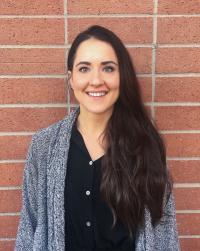
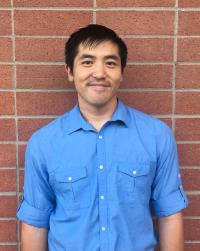
The previous model of what makes a successful and competitive graduate student has changed considerably from its research heavy focus. The current landscape requires that graduate students have a greater breadth of experience in teaching, leadership, and mentoring. While graduate students have easy access to improving research skills, opportunities to gain experience in other areas critical to professional development are lacking. This project attempts to address these issues by providing graduate students with training and education in mentorship and program development.
The first part of the project focuses on pairing a graduate with an undergraduate student to facilitate mentorship and guiding experience for the graduate student, and to expose the undergraduate to what it is like being a graduate student researcher. This project will be partnered with the URC (Undergraduate Research Center) and include students from both STEM and Art and Humanity disciplines.
After the graduate student has gained experience through mentoring, they will learn how to develop and organize a mentor-mentee service project from the ground up for their respective fields. It will include topics on how to set up workshops, tracking and setting project goals, and evaluating project success. This portion of the project augments professional development by providing participants with the blue print for starting up any type of future service project.
Learn More about Laura and Perot's Project
Establishing a Writing Community on the Sacramento Campus
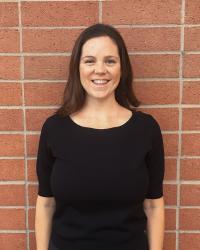
Sarah Reed
Despite extensive workshops, courses and support for writing on the Davis campus, few Sacramento-based graduate students and post-doctoral fellows participate or take advantage of these resources. To address this problem, Establishing a Writing Community on the Sacramento Campus will leverage existing opportunities in Davis and bring them to Sacramento students, fellows and faculty. Each quarter will have a unique writing-related module addressing the following themes: Fall) Getting Started: Resources to Support Writing in the Sciences; Winter) Providing and Managing Feedback; and Spring) Becoming a Productive Writer. Each module will have a workshop or activity in Sacramento, occurring within the quarter to address the theme. After each session, a survey evaluating the usefulness of the seminar, including an opportunity to provide suggestions for improvement will be given.
Learn More about Sarah's Project
Data Visualization and Design with D3js
Carlos Rojas & Sahoko Yui
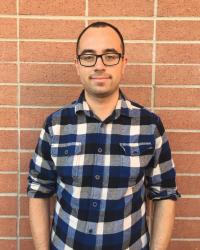
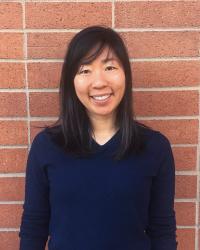 Communicating results, analysis, and findings is a major task for researchers and teachers. Often, data visualization can help scientists analyze complex phenomena. And presenting data visualizations, such as in a poster session, lecture, or presentation, have become increasingly popular. However, graduate students, postdoctoral scholars, and scientists are not currently taking full advantage of modern visualization tools, techniques, and programs available. One reason is that most tools require some base knowledge of computer graphics. Another reason is that visualization tools are usually only taught in upper division computer science courses. And, more often than not, graduate students and post-docs are often left searching for guidelines and tools on their own.
Communicating results, analysis, and findings is a major task for researchers and teachers. Often, data visualization can help scientists analyze complex phenomena. And presenting data visualizations, such as in a poster session, lecture, or presentation, have become increasingly popular. However, graduate students, postdoctoral scholars, and scientists are not currently taking full advantage of modern visualization tools, techniques, and programs available. One reason is that most tools require some base knowledge of computer graphics. Another reason is that visualization tools are usually only taught in upper division computer science courses. And, more often than not, graduate students and post-docs are often left searching for guidelines and tools on their own.
The surge of big data is creating a greater need for proficiency in data analysis. We propose a series of video lectures and workshops to introduce graduate students and postdoctoral scholars to a popular and powerful interactive data visualization tool called D3js. With proper introduction and instruction, users can learn to create visual maps, interactive graphs, and diagrams. These visualizations can be easily shared over the web in order to collaborate with other scientists. In addition to teaching D3js, we will provide lessons on graphic design principles and basics of computer programs of all the Adobe Creative Suites to enhance the visuals created in D3js.
The goals of this video workshop are three-fold: 1) how to create visualizations using D3js; 2) teach graphic design principles and guidelines of visualizations; and 3) create an open virtual space for people to post examples and communicate with others.
Learn More about Carlos and Sahoko's Project
Publishing in the Academy: Strategies for Navigating the Writing Process from Start to Finish
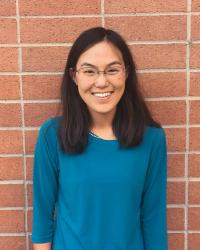
Lina Yamashita
Writing for publication is a key skill for all academics. Nevertheless, graduate students do not necessarily receive explicit guidance on how to publish articles. How do I get started? Which journal should I submit to? How do I write the Introduction, Literature Review, and/or Discussion? What are some do’s and don’ts in writing an article? How do I respond to reviewers? What do I do if reviewers offer conflicting feedback?
If you’ve asked any of these questions to yourself, this workshop series for you. Over the course of Winter and Spring, I will offer a 3-part workshop series on writing for publication: 1) Getting started: What you need to know about writing journal articles, 2) Strategies for writing different sections of the paper (especially the Introduction, Literature Review, and Discussion), and 3) Navigating the next steps after submitting your article (including how to respond to reviewers). Featuring small-group activities and panel discussions of graduate students and faculty from a variety of disciplines who will share their experiences with publishing papers, you will gain resources that will help guide you through the process of writing in the academy.
